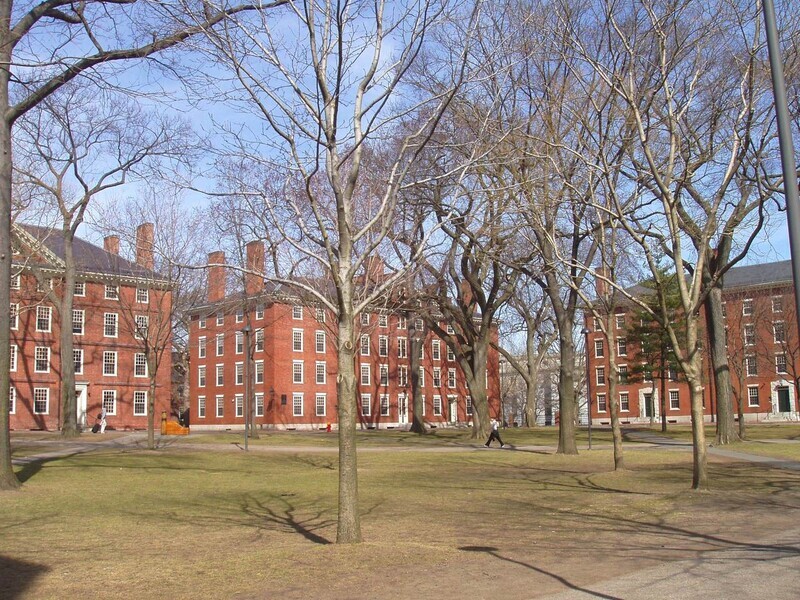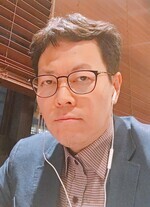hankyoreh
Links to other country sites 다른 나라 사이트 링크
[Guest essay] How meritocracy differs in Korea and America


By Kim Yeong-jun, former editorial director of Open Books publisher
In 2008, Korean American educational psychologist Samuel Kim submitted his dissertation titled “First and Second Generation Conflict in Education of Asian American Community” to Columbia University. Having studied 20 years’ worth of school registers of 14 prestigious US universities, Kim concluded that the dropout rate for Korean American students in college was 44% — higher than that of any other ethnic group.
This study, which demonstrated the lackluster results of educational fervor among Koreans, has been regularly featured in Korean media. As its title suggests, the study’s subjects were Korean Americans, so its findings cannot be directly applied to the situation in Korea. However, this turned out not to be a huge problem, as Korean parents in Korea and first-generation Korean American parents do not differ so much when it comes to their attitudes towards education.
The college dropout rate for college students in the US as a whole is over 40%. However, that’s not the case at prestigious universities. Currently, Harvard University advertises on its website that 98% of its students end up graduating without a hitch. A more objective 2021 study estimated the dropout rate for Ivy League universities to be around 10% to 15% — a figure that’s wildly divergent from that for Korean American students who reportedly drop out of college at a rate of 44%.
How can such failure and waste be explained? I’m not an expert, so I’ll just elaborate on my hunch. Korean meritocracy operates based on different rules compared to that of the US. Koreans think of tests as entryways into castles. Once they cross the threshold after doing their absolute best, they think they can sit back and relax like someone who has just managed to make their deadline.
Of course, the castle’s gate has to be shut closed behind them so that none can slip in or out midway. This system in which once you enter, nothing more is asked of you, and the door shuts behind you, operates as a social elevator. That this has been the unspoken social contract in Korea can be seen from the fact that the graduation quota system in the country was abolished after only a few years in effect in the 1980s.
I’m not saying that this is desirable. In a society where tests are predominantly conceived of as entryways into castles, the best strategy is to spend 99% of one’s energy on passing the entryway, after which point one can simply rest on one’s laurels.
A few years ago, I read a feature article on students who had fallen into inertia after gaining admission into prestigious universities. In my view, those students were 100% Korean.
The situation is no different in the US, in that students there also consider degrees from prestigious universities as a kind of certification of their social class and vie with each other to obtain them. What’s different is that the class warfare there ends a few years after when it ends in Korea: at the point of graduation. That simple difference easily explains why students of Korean heritage who enter universities having expended all their energy struggle to stay in school.
I’m not sure if there would be a way to resolve this, but the problem is much bigger. After analyzing statistics from the 2010s, US scholar Tim Renick concluded that the main reason students in the US drop out of college is financial difficulties. The low dropout rate at prestigious universities with expensive tuition would signify that only a small minority of their student body is of a social class dealing with financial difficulties.
We may have interpreted the problem of the high college dropout rate among Korean American students through the overly myopic lens of “parents’ greed and its adverse effects.” It’s hard to find in Korean media any analysis that suggests that there must have been students who found it difficult to fund their education among the 44% of Korean American college dropouts — even though it’s not even remotely difficult for us to recall one or two close acquaintances around us who have struggled to pay their tuition.
It would be remiss to conceive of the US system as the epitome of meritocracy. The Ivy League is not a community of successful test-takers as Koreans may think, very openly favoring legacy children of alumni. In other words, it’s faithful to its objective of maintaining the continuity of the ruling class of the US mainstream.
I doubt Korean Americans misunderstood the fundamental nature of the Ivy League. I suspect they probably considered it a challenge worth giving their best shot, as minorities who face various obstacles of their own. Only, they seem to have underestimated how exhausted their children already are of studying, how crucial inherited cultural capital is in the US, and how real the danger of failing to pay astronomical tuition fees actually is.
Please direct questions or comments to [english@hani.co.kr]

Editorial・opinion
![[Editorial] Korea must respond firmly to Japan’s attempt to usurp Line [Editorial] Korea must respond firmly to Japan’s attempt to usurp Line](https://flexible.img.hani.co.kr/flexible/normal/500/300/imgdb/original/2024/0514/2317156736305813.jpg) [Editorial] Korea must respond firmly to Japan’s attempt to usurp Line
[Editorial] Korea must respond firmly to Japan’s attempt to usurp Line![[Editorial] Transfers of prosecutors investigating Korea’s first lady send chilling message [Editorial] Transfers of prosecutors investigating Korea’s first lady send chilling message](https://flexible.img.hani.co.kr/flexible/normal/500/300/imgdb/original/2024/0514/7917156741888668.jpg) [Editorial] Transfers of prosecutors investigating Korea’s first lady send chilling message
[Editorial] Transfers of prosecutors investigating Korea’s first lady send chilling message- [Column] Will Seoul’s ties with Moscow really recover on their own?
- [Column] Samsung’s ‘lost decade’ and Lee Jae-yong’s mismatched chopsticks
- [Correspondent’s column] The real reason the US is worried about Chinese ‘overcapacity’
- [Editorial] Yoon’s gesture at communication only highlights his reluctance to change
- [Editorial] Perilous stakes of Trump’s rhetoric around US troop pullout from Korea
- [Guest essay] Preventing Korean Peninsula from becoming front line of new cold war
- [Column] The state is back — but is it in business?
- [Column] Life on our Trisolaris
Most viewed articles
- 1Ado over Line stokes anti-Japanese sentiment in Korea, discontent among Naver employees
- 2[Column] Samsung’s ‘lost decade’ and Lee Jae-yong’s mismatched chopsticks
- 3Korean opposition decries Line affair as price of Yoon’s ‘degrading’ diplomacy toward Japan
- 4US has always pulled troops from Korea unilaterally — is Yoon prepared for it to happen again?
- 5Korean auto industry on edge after US hints at ban on Chinese tech in connected cars
- 6[Editorial] Yoon’s gesture at communication only highlights his reluctance to change
- 7[Correspondent’s column] The real reason the US is worried about Chinese ‘overcapacity’
- 8[Column] Will Seoul’s ties with Moscow really recover on their own?
- 9[Photo] Korean students protest US complicity in Israel’s war outside US Embassy
- 101 in 3 S. Korean security experts support nuclear armament, CSIS finds